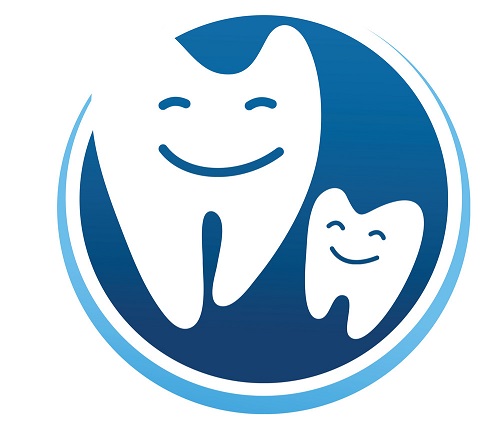Introduction
Dental sealants are a preventive dental treatment that can help protect your teeth from decay and cavities. They are a thin, plastic coating that is applied to the chewing surfaces of your back teeth, where decay is most likely to occur. This simple and painless procedure can provide long-lasting protection for your teeth, especially for children and teenagers who are more prone to cavities.
What are Dental Sealants?
Dental sealants are a preventive dental treatment that involves applying a thin, plastic coating to the chewing surfaces of your teeth. They are typically applied to the back teeth, including molars and premolars, which are more prone to decay and cavities due to their rough and uneven surfaces.
How do Dental Sealants Work?
The process of applying dental sealants is quick, painless, and non-invasive. Here’s how it works:
1. Cleaning:
First, your dentist will thoroughly clean the teeth that will receive the sealants. This ensures that no food particles or bacteria are trapped beneath the sealant.
2. Conditioning:

Next, a special solution is applied to the teeth to roughen the surface slightly. This helps the sealant bond effectively to the tooth.
3. Application:
The dentist will then apply the dental sealant onto the chewing surfaces of the teeth. The sealant is a liquid that quickly hardens into a protective plastic coating.
Why are Dental Sealants Important?
Dental sealants play a crucial role in preventing tooth decay and cavities. Here are some reasons why they are important:
1. Protection:
Sealants act as a barrier, protecting the vulnerable areas of your teeth from bacteria, plaque, and acids that can cause decay.
2. Prevention:
By sealing the deep grooves and pits on the chewing surfaces of your teeth, sealants prevent food particles from getting stuck and becoming a breeding ground for bacteria.
3. Longevity:
Dental sealants can last for several years with proper care. They provide long-term protection against decay, reducing the need for extensive dental treatments in the future.
Who can Benefit from Dental Sealants?
Dental sealants are beneficial for both children and adults. However, they are particularly recommended for:
1. Children:
Children are more prone to cavities due to their developing.
Summary
Dental sealants act as a barrier, protecting the enamel of your teeth from the acids and bacteria that can cause decay. The chewing surfaces of your back teeth have deep grooves and pits that can be difficult to clean properly, making them more susceptible to cavities. Sealants fill in these grooves, creating a smooth surface that is easier to clean and less likely to trap food particles and plaque.
The application of dental sealants is a quick and painless process. Your dentist will clean and dry the teeth, then apply an acidic gel to roughen the surface slightly. This helps the sealant bond to the tooth. After rinsing and drying the tooth again, the sealant is painted onto the tooth enamel and hardened with a special light. The entire procedure usually takes only a few minutes per tooth.
Sealants can last for several years with proper oral hygiene and regular dental check-ups. Your dentist will check the condition of the sealants during your routine visits and can reapply them if necessary. Dental sealants are a cost-effective way to prevent cavities and protect your teeth, especially for children and teenagers who may not have developed optimal brushing and flossing habits yet.
By getting dental sealants, you can take a proactive step in maintaining your oral health and preventing tooth decay. Talk to your dentist abou visit site t whether sealants are a suitable option for you or your child, and enjoy the peace of mind that comes with knowing your teeth are well-protected.
- Q: What are dental sealants?
- A: Dental sealants are thin plastic coatings applied to the chewing surfaces of the back teeth to protect them from decay and cavities.
- Q: How do dental sealants work?
- A: Dental sealants work by creating a protective barrier on the tooth’s surface, preventing bacteria and food particles from getting trapped in the grooves and crevices.
- Q: Who can benefit from dental sealants?
- A: Dental sealants are most commonly recommended for children and teenagers, as their newly erupted permanent teeth are more prone to cavities. However, adults can also benefit from sealants.
- Q: Are dental sealants visible?
- A: Dental sealants are usually clear or white in color, making them virtually invisible on the teeth.
- Q: How long do dental sealants last?
- A: Dental sealants can last for several years with proper oral hygiene and regular dental check-ups. They may need to be reapplied if they become worn or damaged.
- Q: Is getting dental sealants a painful procedure?
- A: No, getting dental sealants is a painless and quick procedure. It does not require any drilling or removal of tooth structure.
- Q: Can dental sealants be applied to all teeth?
- A: Dental sealants are typically applied to the permanent molars and premolars, which have deep grooves and are more susceptible to decay. They are not usually applied to baby teeth or fully erupted adult teeth.
- Q: Do dental sealants require special care?
- A: Dental sealants do not require any special care. However, maintaining good oral hygiene practices such as regular brushing, flossing, and dental visits is essential for overall oral health.

Hello, and welcome to my website! My name is Thomas Anderson, and I am thrilled to share my passion for dental hygiene with you. As a professional dental hygienist, I have dedicated my career to helping individuals achieve optimal oral health and maintain beautiful smiles.


